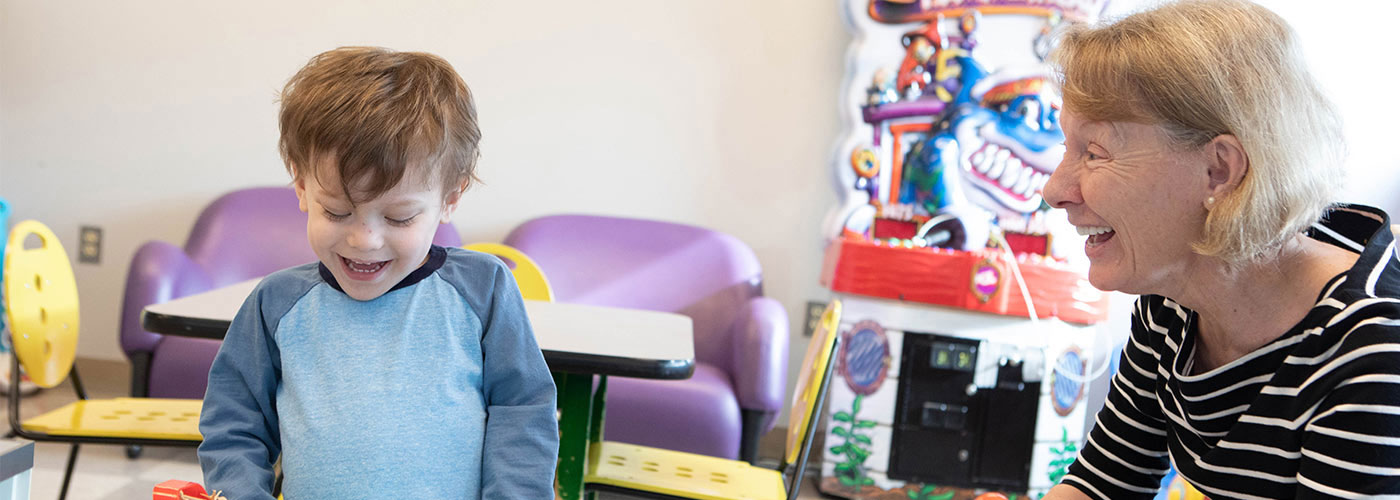When a child is diagnosed with cancer, the social and emotional needs of the entire family are tremendous.
Family members need to learn a new vocabulary to understand the illness and its treatment. Often, one parent needs to curtail or cease working to care for the ill child, causing financial strain. Siblings need to adjust to new schedules and the absence of a caretaker and sibling during extended treatments and hospital stays.
To support our patients and their families’ psychosocial needs, the Children’s Cancer Institute has a robust team of Child Life Therapists and Social Workers.
“Social workers and child life specialists are crucial and valued members of the pediatric hematology and oncology team. The social workers tackle the complex issues and needs of families with a sick child. Whereas the child life specialist assesses and deals directly with the needs and concerns of the children,” explained Alfred Gillio, M.D., director, Children’s Cancer Institute. “Both groups serve as an important conduit to the medical group and are essential to delivering smooth family-centered care.”
The Social Work team works closely with the parents to support their needs through treatment. At times this includes support in understanding treatment and coping with the emotions associated with having an ill child. Another vital component of our social work team is helping parents manage the financial toll of cancer. Social workers work with families to access patient assistance services to assist with the family’s expenses.
“Our job as social workers is to be there for the parents,” explains Judy Solomon, social work supervisor, Children’s Cancer Institute. “We are there for the entire journey from the very beginning and throughout the trajectory of the illness and treatment. In addition, we provide supportive services in the area of survivorship, as well as, bereavement.”
The Child Life team is comprised of child life specialists, music therapists, and creative art therapists who integrate play therapy, performance, music, and art into the treatment of children. Their work helps children to better understand their diagnosis, channel their emotions during their illness or injury, and provide an alternative method for them to communicate.
“Creative arts and music therapy are integral parts of the program, and are provided as part of the treatment plan” said Ellen Goldring, section chief, Child Life Therapy. “We meet the child at their level and provide them outlets for respite and understanding.”
Unlike medical treatment, social work and child life services are not subsidized by insurance payments. Many of the services provided are supported by philanthropy. “The generosity of donors is crucial to the growth and success of these programs,” explained Dr. Gillio. “We are grateful to Tackle Kids Cancer supporters for investing in these crucial services.”
